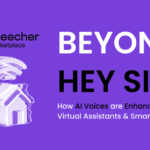In the realm of artificial intelligence, a fascinating development has emerged: vocal clone AI. This technology can mimic a person’s voice with remarkable accuracy, raising intriguing questions about its potential applications and limitations. One such question is whether vocal clone AI can be used to create entirely new voices that don’t sound like real people.
While the technology is still in its infancy, there’s growing evidence that it may be possible to generate synthetic voices that are indistinguishable from human speech. This could have profound implications for various industries, from entertainment to education. However, the road to creating truly original AI-generated voices is fraught with challenges, including the need for vast amounts of data and the ethical considerations surrounding the use of synthetic voices.
My Proven Way to Make $100-$200 Per Day With 0 Investment – Watch THIS FREE Video to START >>

The Limitations of Current Vocal Clone AI
While vocal clone AI has made significant strides, it’s essential to recognize its current limitations. One of the most significant constraints is its reliance on existing voice data. To create a synthetic voice, the AI algorithm must be trained on a substantial amount of audio samples from a specific person. This means that the generated voice will inevitably reflect the characteristics of the original speaker, limiting its ability to produce entirely new and unique sounds.
Another challenge is the difficulty of replicating the full range of human emotions and nuances in AI-generated voices. While AI can mimic certain vocal patterns and intonations, it struggles to capture the subtle subtleties that convey emotions effectively. For instance, differentiating between genuine laughter and forced laughter, or between genuine anger and feigned anger, remains a formidable task for current vocal clone AI.
Moreover, the use of vocal clone AI raises ethical concerns. Deepfakes, which are manipulated videos or audio recordings that can be used to spread misinformation or harm individuals, are one example of the potential misuse of this technology. Identity theft is another concern, as malicious actors could use AI to impersonate individuals and gain access to their personal information.
The Potential for AI-Generated Voices
Despite its current limitations, vocal clone AI holds immense potential for creating innovative and diverse voices. Recent advancements in AI research are paving the way for more realistic and expressive synthetic speech. For instance, the development of deep learning models has enabled AI systems to learn complex patterns in human speech, leading to more natural-sounding voices.
Neural networks and generative models play a crucial role in generating new audio data. These techniques allow AI systems to create entirely new audio samples based on the patterns they have learned from existing data. By training these models on vast datasets of human speech, researchers can develop AI systems that can generate a wide range of voices, including those that are not based on specific individuals.
Moreover, there is growing interest in customizing and personalizing AI-generated voices to meet specific needs or preferences. This could involve tailoring voices to match particular accents, dialects, or even the style of a specific speaker. By allowing users to fine-tune the characteristics of AI-generated voices, we can create more engaging and personalized experiences.

Click The Link To Buy Vocal Clone AI
The Challenges of Creating Original Voices
While vocal clone AI has the potential to create innovative voices, the challenge of achieving true originality remains. Even with advanced algorithms, it’s difficult to generate a voice that doesn’t bear some resemblance to existing human voices. The vast amount of data used to train AI models often leads to subtle influences from real-world speakers.
Copyright and intellectual property issues also arise when creating AI-generated voices. If a synthetic voice is based on a specific person’s voice, questions of ownership and rights may arise. It’s essential to navigate these legal complexities to avoid disputes and ensure ethical use of the technology.
Human judgment and evaluation are crucial in assessing the quality and originality of AI-generated voices. While AI can generate impressive results, it’s difficult for machines to fully capture the nuances and subtleties that make human voices unique. Human listeners can provide valuable feedback on whether a synthetic voice sounds natural, expressive, and truly original.
My Proven Way to Make $100-$200 Per Day With 0 Investment – Watch THIS FREE Video to START >>
Applications of Vocal Clone AI
Vocal clone AI has the potential to revolutionize various industries, from entertainment to education. In the world of entertainment and media, this technology can be used to create realistic voice-overs, characters, and even music. For example, AI-generated voices can be used to replace actors in films or video games, or to create new musical voices for songs.
In the field of education and training, vocal clone AI has the potential to enhance language learning, accessibility, and personalized tutoring. By providing students with access to a wide range of native speakers, AI-generated voices can help them improve their pronunciation and fluency. Additionally, vocal clone AI can be used to create personalized learning experiences, tailoring content and delivery to individual students’ needs.
In business and marketing, AI-generated voices can offer significant benefits in areas such as customer service, advertising, and branding. For instance, AI-powered chatbots can provide 24/7 customer support using natural language processing and synthetic speech. Additionally, AI-generated voices can be used to create personalized advertising messages, tailoring content to individual customers’ preferences.
Ethical Considerations and Future Directions
As vocal clone AI continues to advance, it’s imperative to address the ethical implications of this technology. One of the most pressing concerns is the protection of individuals’ privacy. The ability to create synthetic voices based on real-world data raises questions about consent and the potential for misuse. It’s crucial to establish clear guidelines and regulations to ensure that individuals’ voices are not used without their permission.
The ethical implications of vocal clone AI also highlight the need for effective regulation and governance. By implementing appropriate safeguards, we can mitigate the risks associated with this technology, such as deepfakes and identity theft. International collaboration and cooperation will be essential in developing a global framework for regulating the use of vocal clone AI.
Looking ahead, there are exciting opportunities for further research and development in the field of vocal clone AI. Improving the emotional range and diversity of AI-generated voices is a key area of focus. By developing AI models that can better capture the nuances of human emotion, we can create more expressive and engaging synthetic speech. Additionally, exploring new applications for vocal clone AI, such as in healthcare or accessibility, can unlock its full potential.
My Proven Way to Make $100-$200 Per Day With 0 Investment – Watch THIS FREE Video to START >>
Conclusion
In conclusion, vocal clone AI presents both exciting opportunities and significant challenges. While the technology has advanced rapidly, there are still limitations in terms of creating truly original and emotionally nuanced voices. Ethical considerations, such as privacy and consent, must also be carefully addressed.
Despite these challenges, the potential applications of vocal clone AI are vast. From entertainment and media to education and business, this technology has the power to transform various industries. As research and development continue to progress, we can expect to see even more innovative and impressive uses of vocal clone AI in the future.









